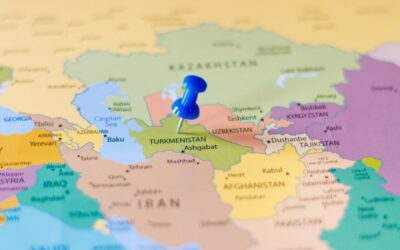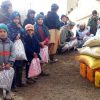
WHO Warns of Polio Threat Amid Afghan Migration
09 April 2024
The recent influx of approximately 600,000 undocumented migrants from Pakistan to Afghanistan, coupled with an estimated 200,000 unvaccinated children in southern Afghan regions, poses a significant threat to the regional progress achieved against polio, as stated by the World Health Organization (WHO) in its latest report released on Monday. Despite significant strides in interrupting the transmission of the two remaining genetic clusters of wild poliovirus type 1 (WPV1) in the region, both Pakistan and Afghanistan, the only two countries where poliovirus remains endemic, face challenges. While Pakistan has reported two cases of polio infections this year, Afghanistan has reported none. The WHO’s assessment underscores that the recent mass displacement of undocumented Afghans from Pakistan heightens the risk of cross-border transmission of poliovirus, along with the potential for internal spread within both nations. It warns that any setback in Afghanistan’s polio eradication efforts poses a substantial risk to Pakistan’s program due to extensive population movement between the two countries. Efforts to manage and mitigate this risk include coordinated vaccination campaigns at border crossing points. However, vaccination coverage in southern Afghan provinces, including Helmand, Kandahar, Uruzgan, Zabul, and Nimruz, though improved, remains below optimal levels, leaving an estimated 200,000 children unreached and vulnerable to poliovirus infection. The report emphasizes the efficacy of house-to-house immunization campaigns while acknowledging that certain regions in Afghanistan still restrict vaccinations to site-to-site or mosque-to-mosque approaches. It commends the Taliban government’s commitment to the global polio eradication goal and applauds the increased involvement of Afghan female healthcare workers in vaccination campaigns. Moreover, WHO strongly advocates for the implementation of house-to-house campaigns wherever feasible.Despite restrictions on women’s participation in various sectors, including the workforce, the health sector in Afghanistan largely operates without such constraints. This exemption enables the utilization of female healthcare workers in vaccination campaigns, contributing to broader immunization coverage and progress towards polio eradication.
there is not post in layout 2

Pakistani and Iranian Leaders Commit to Strengthen Cooperation in Combating Militancy Originating from Afghanistan
Pakistan and Iran, neighboring nations with a lengthy and permeable...















